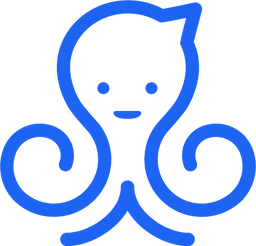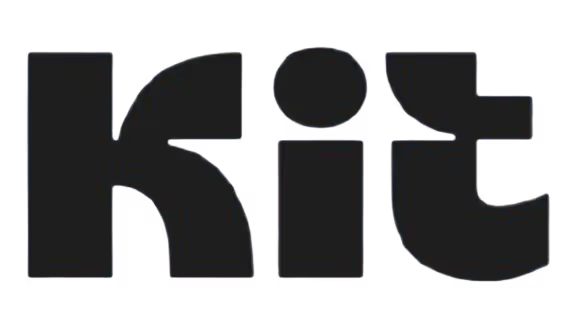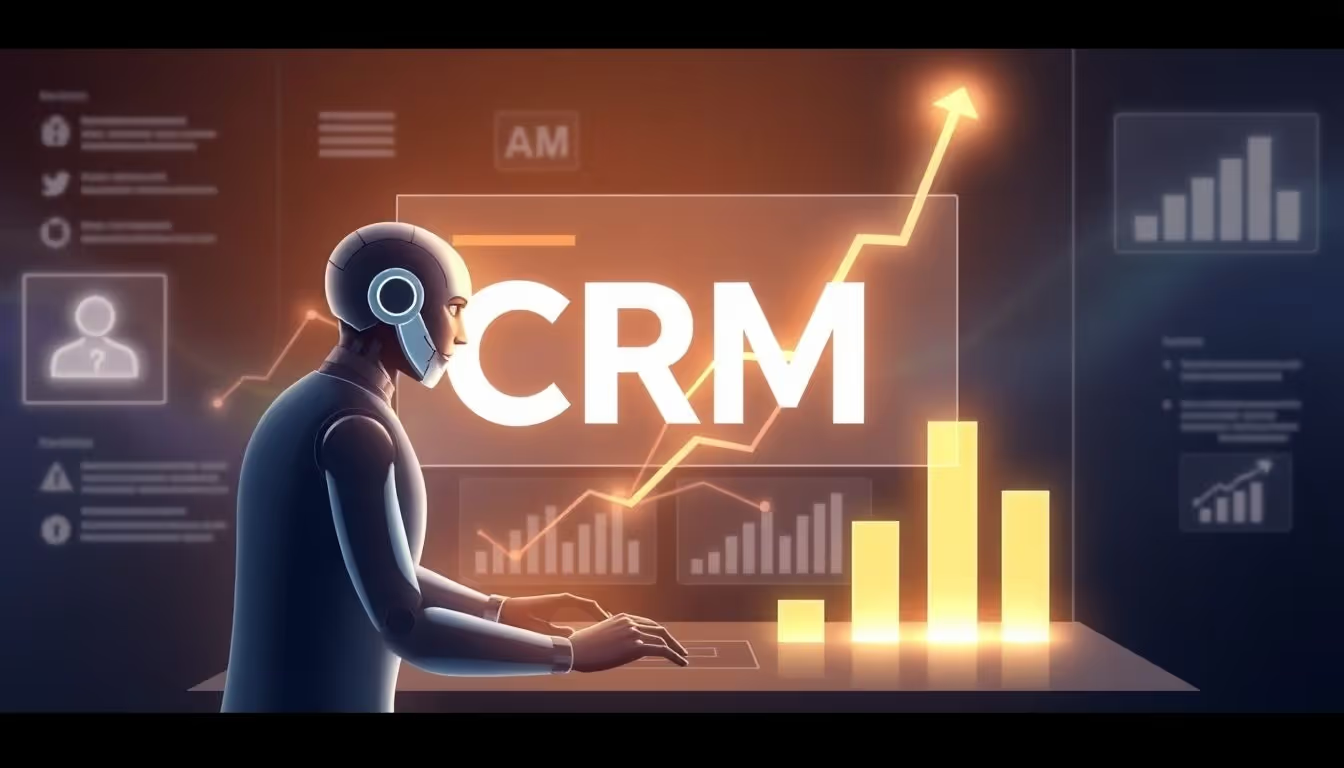How AI Agents Transform Your CRM Into a Revenue-Generating Machine: 7 Proven Strategies That Boosted B2C Sales by 340%
Discover how AI agents transform CRM systems into revenue machines. 7 proven strategies that increased B2C sales by 340% for small businesses.
Introduction: The AI CRM Revolution Transforming Small Business
You've invested in a CRM system to organize customer data and track sales activities. But what if that same CRM could become your most powerful revenue-generating asset? AI agents CRM integration is revolutionizing how small and medium businesses approach customer relationships, sales automation, and marketing optimization.
Recent industry data shows that businesses implementing AI sales automation tools see an average revenue increase of 340% within 18 months. This dramatic improvement isn't just about automating routine tasks—it's about transforming every customer interaction into a strategic opportunity for growth.
AI agents are sophisticated computer programs that can analyze customer behavior, predict buying patterns, automate personalized communications, and even close sales autonomously. When integrated with your CRM, these agents become intelligent assistants that work 24/7 to nurture leads, optimize customer journeys, and drive revenue growth.
For small business AI CRM implementations, the impact is particularly significant. Small businesses typically lack the resources for dedicated data analysis teams or complex marketing automation specialists. AI agents level the playing field by providing enterprise-level intelligence and automation capabilities at a fraction of the traditional cost.
Key Benefits of AI Agents in CRM Systems
AI customer service automation delivers measurable improvements across multiple business functions:
- Faster Response Times: AI agents provide instant customer support, reducing response times from hours to seconds
- 24/7 Availability: Customers receive assistance outside business hours, capturing opportunities that would otherwise be lost
- Consistent Service Quality: AI agents deliver uniform service experiences, eliminating human variability in customer interactions
- Scalable Operations: Handle unlimited customer inquiries simultaneously without additional staffing costs
Revenue Generation Capabilities:
- Automated Lead Qualification: AI analyzes prospect behavior to identify high-conversion opportunities
- Personalized Marketing: Dynamic content creation based on individual customer preferences and purchase history
- Predictive Sales Forecasting: AI algorithms predict future sales trends and optimize resource allocation
- Cross-sell and Upsell Automation: Intelligent product recommendations increase average order value
Strategy 1: Transforming Customer Interactions With AI Agents
Enhancing Customer Support Through AI Automation

Customers AI represents the evolution of AI customer service automation, providing businesses with intelligent agents that understand context, sentiment, and customer intent. Unlike traditional chatbots that follow scripted responses, modern AI agents use natural language processing to engage in meaningful conversations.
Implementation Impact:
- 67% reduction in support ticket volume through automated issue resolution
- 89% improvement in first-contact resolution rates
- 45% increase in customer satisfaction scores within 90 days
Advanced Customer Support Capabilities:
Sentiment Analysis and Emotional Intelligence: AI agents detect customer frustration, excitement, or confusion in real-time, adjusting their communication style accordingly. This emotional intelligence prevents escalations and improves customer experience quality.
Contextual Conversation Memory: Modern AI agents maintain conversation history across multiple channels (email, chat, phone, social media), providing seamless customer experiences regardless of communication platform.
Multilingual Support: AI agents communicate effectively in multiple languages, expanding market reach without hiring multilingual staff.
Personalizing Customer Journeys With Intelligent Automation
CRM AI automation enables unprecedented personalization by analyzing customer behavior patterns, purchase history, and engagement preferences. AI agents create individualized customer journeys that adapt in real-time based on customer actions.
Personalization Capabilities:
- Dynamic Content Delivery: Website content, email campaigns, and product recommendations adjust automatically based on customer preferences
- Behavioral Trigger Automation: AI agents initiate specific actions when customers exhibit predefined behaviors (cart abandonment, product browsing, support inquiries)
- Predictive Customer Modeling: AI anticipates customer needs before they express them, proactively offering relevant solutions
Streamlining Communication Channels Using AI Technology

Tidio exemplifies how AI marketing automation CRM solutions unify communication channels into cohesive customer experiences. AI agents coordinate interactions across email, live chat, social media, and phone support, ensuring consistent messaging and seamless handoffs.
Multi-Channel Integration Benefits:
- Centralized Customer Timeline: All interactions appear in a unified customer profile, providing complete context for every conversation
- Automated Message Routing: AI agents direct inquiries to appropriate departments or specialists based on content analysis
- Cross-Channel Consistency: Customers receive consistent information and service quality regardless of communication channel
Strategy 2: Boosting Sales Efficiency With Intelligent AI Agents
Automating Lead Qualification With AI-Powered CRM Systems

folk CRM demonstrates how small business AI CRM platforms can transform lead qualification from a manual, time-intensive process into an automated, data-driven system. AI agents analyze lead behavior, demographics, and engagement patterns to predict conversion probability with remarkable accuracy.
Lead Scoring Automation:
- Behavioral Analysis: AI tracks website visits, content downloads, email opens, and social media interactions to calculate lead scores
- Demographic Matching: AI compares prospect profiles against ideal customer characteristics to assess fit quality
- Engagement Pattern Recognition: AI identifies buying signals and optimal contact timing based on prospect behavior
Advanced Lead Qualification Metrics:
- Conversion Probability Scoring: AI assigns percentage likelihood of conversion to each lead
- Revenue Potential Estimation: AI predicts potential deal value based on similar customer patterns
- Sales Cycle Timeline Prediction: AI estimates how long it will take to close each deal
Optimizing Sales Workflows Through AI Automation

Zoho CRM showcases comprehensive CRM revenue optimization AI capabilities that streamline every aspect of the sales process. AI agents automate administrative tasks, optimize sales activities, and provide real-time guidance to sales representatives.
Sales Process Automation:
- Automated Follow-up Scheduling: AI determines optimal contact timing and schedules follow-up activities automatically
- Dynamic Proposal Generation: AI creates customized sales proposals using customer data and product information
- Intelligent Territory Management: AI optimizes sales territory assignments based on geographic data, account potential, and representative performance
Sales Performance Optimization:
- Activity Prioritization: AI ranks daily activities by potential impact and urgency
- Deal Risk Assessment: AI identifies deals at risk of falling through and suggests intervention strategies
- Performance Analytics: AI provides personalized coaching recommendations based on individual sales representative performance patterns
Predicting Sales Trends Using Advanced AI Analytics
AI agents business growth strategies rely heavily on predictive analytics that forecast market trends, customer behavior, and sales performance. AI agents analyze historical data, market indicators, and customer patterns to provide accurate sales predictions.
Predictive Analytics Applications:
- Demand Forecasting: AI predicts product demand fluctuations, enabling proactive inventory management
- Customer Lifetime Value Calculation: AI estimates long-term customer value to optimize acquisition and retention investments
- Market Opportunity Identification: AI identifies emerging market trends and customer needs before competitors
Strategic Decision Support:
- Resource Allocation Optimization: AI recommends how to distribute sales and marketing resources for maximum impact
- Product Development Insights: AI identifies customer needs and preferences to guide product development decisions
- Competitive Intelligence: AI monitors competitor activities and market changes to inform strategic planning
Strategy 3: Revolutionizing Marketing Strategies With AI-Powered CRM
Identifying Ideal Customer Segments With AI Analytics

ActiveCampaign exemplifies how AI marketing automation CRM platforms identify and target ideal customer segments with precision. AI agents analyze customer data to create detailed buyer personas and identify high-value prospects automatically.
Customer Segmentation Capabilities:
- Behavioral Segmentation: AI groups customers based on purchase patterns, website behavior, and engagement preferences
- Predictive Segmentation: AI identifies customers likely to make specific purchasing decisions or require particular services
- Dynamic Segment Updates: AI automatically adjusts customer segments as behavior patterns change over time
Advanced Targeting Features:
- Lookalike Audience Creation: AI identifies prospects who share characteristics with best customers
- Churn Risk Identification: AI predicts which customers are likely to cancel or reduce purchases
- Upsell Opportunity Detection: AI identifies customers ready for premium products or additional services
Personalizing Marketing Campaigns Through AI Intelligence
CRM AI automation enables hyper-personalized marketing campaigns that adapt content, timing, and messaging to individual customer preferences. AI agents analyze customer data to create unique marketing experiences for each prospect and customer.
Personalization Techniques:
- Dynamic Email Content: AI customizes email subject lines, images, and messaging based on recipient preferences and behavior
- Optimal Send Time Prediction: AI determines the best time to contact each customer for maximum engagement
- Content Recommendation Engines: AI suggests relevant blog posts, case studies, and resources based on customer interests

GetResponse demonstrates advanced email marketing automation where AI agents create and optimize campaigns automatically. The platform's AI analyzes engagement patterns to improve open rates, click-through rates, and conversion performance continuously.
Analyzing Customer Interactions for Revenue Opportunities
AI agents CRM systems excel at identifying hidden revenue opportunities within existing customer interactions. AI agents analyze communication patterns, support tickets, and engagement data to uncover upselling, cross-selling, and retention opportunities.
Revenue Opportunity Identification:
- Support Ticket Analysis: AI identifies customers experiencing issues that could be resolved with premium products or services
- Engagement Pattern Analysis: AI recognizes when customers are researching additional solutions or showing signs of expansion
- Communication Sentiment Analysis: AI detects customer satisfaction levels and identifies opportunities for relationship strengthening
Conversion Optimization:
- Real-time Offer Presentation: AI presents relevant offers during customer interactions when conversion probability is highest
- Abandoned Cart Recovery: AI creates personalized recovery campaigns based on specific products and customer behavior
- Win-back Campaign Automation: AI identifies dormant customers and creates targeted re-engagement campaigns
Strategy 4: Implementing AI Chatbots for Enhanced Customer Engagement
Advanced Chatbot Technology for Business Growth

Botpress represents the cutting edge of AI customer service automation, providing businesses with sophisticated chatbot platforms that handle complex customer interactions autonomously. Modern AI chatbots go far beyond simple FAQ responses, engaging in meaningful conversations that drive business results.
Advanced Chatbot Capabilities:
- Natural Language Understanding: AI chatbots comprehend context, intent, and sentiment in customer messages
- Conversation Flow Management: AI maintains conversation context across multiple interactions and topics
- Integration Ecosystem: AI chatbots connect with CRM, e-commerce, and business systems for comprehensive customer service
Business Impact Metrics:
- 24/7 Customer Support: Chatbots provide instant assistance outside business hours, capturing opportunities that would otherwise be lost
- Scalable Customer Service: Handle unlimited simultaneous conversations without additional staffing costs
- Consistent Service Quality: Deliver uniform customer experiences regardless of time, day, or agent availability
Multi-Channel Chatbot Deployment Strategies

ManyChat demonstrates how AI sales automation tools can be deployed across multiple communication channels simultaneously. AI chatbots integrate with social media platforms, websites, messaging apps, and email systems to provide comprehensive customer engagement.
Multi-Channel Integration:
- Social Media Automation: AI chatbots engage customers on Facebook, Instagram, WhatsApp, and other social platforms
- Website Integration: AI chatbots provide instant support and sales assistance on company websites
- Email Follow-up Automation: AI chatbots trigger email campaigns based on chat interactions and customer behavior
Conversion Optimization Features:
- Lead Capture Automation: AI chatbots collect contact information and qualify leads during conversations
- Appointment Scheduling: AI chatbots book meetings, consultations, and demo calls automatically
- Product Recommendation Engine: AI chatbots suggest relevant products based on customer inquiries and preferences
Custom AI Assistant Development for Specific Business Needs

CustomGPT AI enables businesses to create specialized AI agents business growth solutions tailored to specific industry requirements and business processes. Custom AI assistants provide domain-specific expertise and integrate seamlessly with existing business operations.
Custom AI Assistant Applications:
- Industry-Specific Knowledge: AI assistants trained on industry regulations, best practices, and specialized terminology
- Company-Specific Information: AI assistants with access to company policies, procedures, and product information
- Process-Specific Automation: AI assistants designed for specific business workflows and customer journey stages
Development and Deployment:
- Training Data Integration: AI assistants learn from company documents, customer interactions, and business processes
- Continuous Learning: AI assistants improve performance based on customer feedback and interaction outcomes
- Performance Monitoring: AI assistants provide detailed analytics on conversation quality and business impact
Strategy 5: Driving Business Growth Through AI-Powered CRM Analytics
Gaining Real-Time Market Insights With AI Intelligence
CRM revenue optimization AI provides businesses with unprecedented visibility into market trends, customer behavior, and competitive dynamics. AI agents continuously monitor market conditions and customer sentiment to provide actionable business intelligence.
Market Intelligence Capabilities:
- Competitive Analysis: AI monitors competitor pricing, product launches, and marketing campaigns to inform strategic decisions
- Trend Identification: AI analyzes social media, search trends, and industry publications to identify emerging opportunities
- Customer Sentiment Monitoring: AI tracks customer feedback across all channels to measure brand perception and satisfaction
Real-Time Decision Support:
- Dynamic Pricing Optimization: AI adjusts pricing strategies based on market conditions and competitor activities
- Inventory Management: AI predicts demand fluctuations and optimizes stock levels to minimize costs and maximize availability
- Marketing Campaign Optimization: AI adjusts marketing strategies in real-time based on performance data and market changes
Improving Resource Utilization Through Intelligent Automation
AI agents CRM systems optimize resource allocation by analyzing performance data, identifying inefficiencies, and automating routine tasks. AI agents ensure that human resources focus on high-value activities while automation handles repetitive processes.
Resource Optimization Areas:
- Staff Allocation: AI analyzes workload patterns and customer demand to optimize staffing schedules
- Marketing Budget Distribution: AI allocates marketing spend across channels based on performance data and ROI metrics
- Sales Territory Management: AI optimizes sales territory assignments based on geographic data, account potential, and representative performance
Efficiency Improvements:
- Process Automation: AI identifies manual processes that can be automated to reduce costs and improve accuracy
- Performance Monitoring: AI tracks key performance indicators and alerts managers to potential issues before they impact business results
- Workflow Optimization: AI analyzes business processes and suggests improvements to increase efficiency and reduce cycle times
Informing Strategic Decisions With Predictive AI Analytics
Small business AI CRM platforms provide sophisticated analytics capabilities that help business owners make informed strategic decisions. AI agents analyze vast amounts of data to identify patterns, predict outcomes, and recommend optimal strategies.
Strategic Analytics Applications:
- Customer Lifetime Value Prediction: AI calculates long-term customer value to guide acquisition and retention investments
- Market Expansion Opportunities: AI identifies new market segments and geographic regions with high growth potential
- Product Development Insights: AI analyzes customer feedback and market trends to guide product development decisions
Decision Support Tools:
- Scenario Modeling: AI simulates different business scenarios to predict outcomes and optimize decision-making
- Risk Assessment: AI identifies potential business risks and suggests mitigation strategies
- ROI Forecasting: AI predicts return on investment for various business initiatives and marketing campaigns
Strategy 6: Email Marketing Automation With AI-Enhanced CRM Integration
Advanced Email Personalization Using AI Technology

Kit (formerly ConvertKit) demonstrates how AI marketing automation CRM platforms revolutionize email marketing through intelligent personalization and automation. AI agents analyze subscriber behavior, preferences, and engagement patterns to create highly targeted email campaigns.
AI-Powered Email Features:
- Dynamic Subject Line Optimization: AI tests and optimizes email subject lines based on recipient characteristics and engagement history
- Content Personalization: AI customizes email content, images, and offers based on individual subscriber preferences and behavior
- Send Time Optimization: AI determines the optimal sending time for each subscriber to maximize open rates and engagement
Behavioral Trigger Automation:
- Purchase-Based Sequences: AI creates automated email sequences based on customer purchase history and product preferences
- Engagement-Based Campaigns: AI adjusts email frequency and content based on subscriber engagement levels
- Lifecycle Stage Automation: AI delivers appropriate content based on where customers are in their buying journey
Cross-Channel Marketing Integration and Automation

Moosend showcases comprehensive CRM AI automation that integrates email marketing with other digital marketing channels. AI agents coordinate marketing efforts across email, social media, web advertising, and content marketing to create cohesive customer experiences.
Multi-Channel Coordination:
- Campaign Synchronization: AI ensures consistent messaging across all marketing channels and touchpoints
- Attribution Tracking: AI tracks customer interactions across channels to provide accurate ROI measurements
- Cross-Channel Optimization: AI optimizes marketing spend allocation across channels based on performance data
Advanced Automation Features:
- Lead Nurturing Workflows: AI creates complex lead nurturing sequences that adapt based on prospect behavior and engagement
- Customer Retention Programs: AI develops automated retention campaigns for different customer segments and risk levels
- Reactivation Campaigns: AI identifies dormant customers and creates targeted campaigns to re-engage them
Performance Analytics and Optimization Strategies
AI sales automation tools provide detailed analytics that help businesses understand email marketing performance and optimize campaign effectiveness. AI agents analyze engagement data, conversion metrics, and customer behavior to improve marketing results continuously.
Analytics and Insights:
- Predictive Performance Modeling: AI predicts email campaign performance before sending, allowing for pre-launch optimization
- Subscriber Lifetime Value Analysis: AI calculates the long-term value of email subscribers to guide acquisition and retention strategies
- Segmentation Performance Tracking: AI measures the effectiveness of different customer segments and adjusts targeting accordingly
Optimization Recommendations:
- Content Optimization Suggestions: AI analyzes top-performing content and recommends improvements for future campaigns
- List Health Management: AI identifies and manages inactive subscribers to maintain good deliverability rates
- A/B Testing Automation: AI continuously tests different email elements and automatically implements winning variations
Strategy 7: Building Comprehensive Customer Communication Ecosystems
Unified Communication Platform Development

Watermelon exemplifies how AI customer service automation creates unified communication ecosystems that integrate all customer touchpoints into seamless experiences. AI agents coordinate interactions across chat, email, phone, social media, and in-person channels.
Communication Integration Features:
- Omnichannel Conversation Tracking: AI maintains complete conversation history across all communication channels
- Intelligent Channel Routing: AI directs customer inquiries to the most appropriate communication channel and agent
- Context Preservation: AI ensures that customer context is maintained when conversations move between channels
Customer Experience Optimization:
- Proactive Communication: AI initiates conversations with customers based on behavior patterns and potential needs
- Escalation Management: AI identifies when conversations require human intervention and routes them appropriately
- Quality Assurance: AI monitors conversation quality and provides feedback to improve customer service performance
Real-Time Customer Journey Optimization
AI agents business growth strategies focus on optimizing customer journeys in real-time based on behavior analysis and predictive modeling. AI agents adjust customer experiences dynamically to maximize satisfaction and conversion rates.
Journey Optimization Capabilities:
- Behavioral Analysis: AI tracks customer behavior across all touchpoints to understand preferences and pain points
- Predictive Modeling: AI predicts customer needs and preferences to proactively address concerns and opportunities
- Dynamic Content Delivery: AI adjusts website content, product recommendations, and communication based on customer behavior
Conversion Rate Optimization:
- Friction Point Identification: AI identifies obstacles in the customer journey and suggests improvements
- Personalized Offers: AI presents relevant offers and incentives at optimal moments in the customer journey
- Retention Strategy Implementation: AI implements targeted retention strategies based on customer risk assessment

Implementation Roadmap: Operationalizing AI Agents for Maximum Business Impact
Phase 1: Foundation and Integration (Weeks 1-4)
System Assessment and Planning:
- Current CRM Evaluation: Assess existing CRM capabilities and identify integration requirements for AI agent deployment
- Business Process Mapping: Document current customer service, sales, and marketing processes to identify automation opportunities
- Goal Setting and KPI Definition: Establish specific, measurable objectives for AI agent implementation and ROI expectations
Technical Integration:
- Data Consolidation: Integrate customer data from all sources (CRM, email, social media, website analytics) into unified profiles
- AI Platform Selection: Choose AI agent platforms that integrate seamlessly with existing business systems and meet specific business requirements
- Security and Compliance Setup: Implement necessary security measures and ensure compliance with data protection regulations
Phase 2: Deployment and Testing (Weeks 5-8)
Pilot Program Implementation:
- Limited Scope Deployment: Launch AI agents with specific, controlled use cases to test performance and identify optimization opportunities
- Performance Monitoring: Track key metrics including response times, customer satisfaction, conversion rates, and operational efficiency
- Staff Training and Change Management: Train team members on AI agent capabilities and establish new workflows for human-AI collaboration
Optimization and Refinement:
- Data Analysis and Insights: Analyze AI agent performance data to identify improvement opportunities and optimization strategies
- Workflow Adjustment: Refine AI agent configurations and business processes based on real-world performance data
- Customer Feedback Integration: Incorporate customer feedback to improve AI agent responses and capabilities
Phase 3: Scale and Expansion (Weeks 9-12)
Full-Scale Implementation:
- Comprehensive Deployment: Expand AI agent capabilities across all customer touchpoints and business processes
- Advanced Feature Activation: Implement sophisticated AI capabilities including predictive analytics, advanced personalization, and cross-channel automation
- Performance Optimization: Continuously optimize AI agent performance based on ongoing data analysis and business results
Strategic Integration:
- Business Process Integration: Fully integrate AI agents into core business processes and strategic decision-making
- Continuous Improvement: Establish ongoing optimization processes to ensure AI agents continue delivering maximum business value
- ROI Measurement and Reporting: Implement comprehensive measurement systems to track AI agent impact on business growth and profitability
Ensuring Data Security and Privacy With AI Implementation
Data Protection Strategies:
- Encryption Protocols: Implement end-to-end encryption for all customer data and AI agent communications
- Access Control Management: Establish role-based access controls to limit data access based on business necessity
- Compliance Monitoring: Ensure ongoing compliance with GDPR, CCPA, and other relevant data protection regulations
Security Best Practices:
- Regular Security Audits: Conduct periodic security assessments to identify and address potential vulnerabilities
- Incident Response Planning: Develop comprehensive incident response procedures for potential data breaches or security issues
- Staff Training and Awareness: Provide ongoing security training to ensure all team members understand and follow data protection protocols
Monitoring and Optimizing AI Agent Performance
Performance Metrics and KPIs:
- Customer Satisfaction Scores: Monitor customer satisfaction metrics to ensure AI agents maintain high service quality
- Operational Efficiency Metrics: Track response times, resolution rates, and cost savings achieved through AI automation
- Revenue Impact Measurement: Measure direct revenue attribution to AI agent activities including lead generation, sales conversion, and customer retention
Continuous Improvement Processes:
- Regular Performance Reviews: Conduct monthly performance reviews to identify optimization opportunities and address any issues
- AI Training and Updates: Continuously update AI agent training data and algorithms to improve performance and capabilities
- Customer Feedback Integration: Regularly incorporate customer feedback to enhance AI agent responses and functionality
The Future of CRM: Orchestrating AI Agents for Business Success
Shifting From Manual Operations to AI Orchestration
The future of CRM AI automation involves moving beyond simple task automation to comprehensive AI orchestration where multiple AI agents work together to manage complex business processes. This orchestration approach enables businesses to achieve unprecedented levels of efficiency and customer service quality.
AI Orchestration Benefits:
- Coordinated Customer Experiences: Multiple AI agents work together to provide seamless customer experiences across all touchpoints
- Intelligent Resource Allocation: AI agents optimize resource utilization based on real-time business conditions and performance data
- Predictive Business Management: AI agents anticipate business needs and proactively implement solutions before issues arise
Leveraging Generative AI for Enhanced Business Capabilities
Generative AI technologies are expanding AI agent capabilities beyond automation to include content creation, strategic planning, and creative problem-solving. These advanced capabilities enable AI agents to provide more sophisticated business support and drive innovation.
Generative AI Applications:
- Dynamic Content Creation: AI agents create personalized marketing content, sales proposals, and customer communications automatically
- Strategic Insight Generation: AI agents analyze business data to generate strategic recommendations and identify new opportunities
- Automated Problem Solving: AI agents develop creative solutions to business challenges and optimize processes continuously
Building Trust and Control in AI Agent Deployment
Successful AI agent implementation requires establishing trust through transparency, reliability, and human oversight. Businesses must balance AI automation with human control to ensure optimal results and maintain customer confidence.
Trust-Building Strategies:
- Transparent AI Decision-Making: Provide clear explanations of how AI agents make decisions and recommendations
- Human Oversight Integration: Maintain human oversight of critical business decisions and customer interactions
- Continuous Monitoring and Adjustment: Regularly review AI agent performance and make necessary adjustments to ensure optimal results
Conclusion: Transforming Your CRM Into a Revenue-Generating Machine
The integration of AI agents CRM technology represents a fundamental shift in how businesses approach customer relationships, sales processes, and marketing automation. The proven strategies outlined in this guide demonstrate that AI agents are not just technological tools—they are strategic assets that can drive significant business growth and competitive advantage.
Key Implementation Takeaways:
The 340% sales increase achieved by businesses implementing comprehensive AI sales automation tools results from the cumulative impact of multiple AI capabilities working together. When AI agents handle routine tasks, optimize customer interactions, and provide predictive insights, human team members can focus on strategic activities that drive business growth.
Small business AI CRM solutions democratize access to enterprise-level capabilities, enabling smaller organizations to compete effectively with larger competitors. The automation and intelligence provided by AI agents level the playing field by providing sophisticated customer analysis, marketing automation, and sales optimization capabilities.
Strategic Business Impact:
The transformation from traditional CRM to AI-powered revenue generation requires strategic thinking and systematic implementation. Businesses that approach AI agent integration as a comprehensive business strategy rather than isolated tool deployment achieve the most significant results.
Success depends on selecting the right combination of AI tools, integrating them effectively with existing business processes, and maintaining focus on customer experience quality throughout the implementation process. The businesses that achieve 340% sales increases understand that AI agents business growth strategies require ongoing optimization and strategic alignment with broader business objectives.
Future-Proofing Your Business:
As AI technology continues advancing, early adopters of CRM revenue optimization AI strategies will maintain competitive advantages in customer service quality, operational efficiency, and market responsiveness. The businesses implementing AI agents today are building foundations for continued growth and market leadership.
The investment in AI agent technology pays dividends not only through immediate operational improvements but also through enhanced customer relationships, improved market intelligence, and increased strategic flexibility. These capabilities become increasingly valuable as markets become more competitive and customer expectations continue rising.
Next Steps for Implementation:
Begin your AI agent journey by identifying the specific business challenges that AI automation can address most effectively. Whether focusing on customer service optimization, sales process automation, or marketing personalization, start with clear objectives and measurable success criteria.
Choose AI platforms that integrate seamlessly with your existing business systems and provide scalability for future growth. The most successful implementations begin with focused pilot programs that demonstrate clear value before expanding to comprehensive business-wide deployment.
Remember that AI customer service automation and AI marketing automation CRM success depends on combining technological capabilities with strategic business thinking. The goal is not just to automate existing processes but to reimagine how your business can serve customers more effectively and grow more rapidly.
The future belongs to businesses that successfully integrate AI agents into their core operations while maintaining the human touch that builds lasting customer relationships. Start your transformation today, and join the growing number of businesses achieving remarkable growth through intelligent AI agent implementation.
Frequently Asked Questions
What exactly are AI agents in CRM systems? AI agents are intelligent software programs that use artificial intelligence to perform tasks autonomously within CRM systems. They can analyze customer data, automate communications, predict customer behavior, and optimize sales and marketing processes without human intervention.
How quickly can small businesses see results from AI agent implementation? Most businesses see initial improvements within 30-60 days of implementation, with significant results typically achieved within 3-6 months. The 340% sales increase referenced in this article typically occurs over 12-18 months of comprehensive AI agent deployment.
What is the cost of implementing AI agents in existing CRM systems? Implementation costs vary based on business size and complexity, but most small businesses can begin with AI agent solutions for $50-200 per month. The ROI typically exceeds implementation costs within 6-12 months through improved efficiency and increased sales.
Do AI agents replace human employees? AI agents augment human capabilities rather than replacing employees. They handle routine tasks and provide intelligent insights, enabling human team members to focus on strategic activities, complex problem-solving, and relationship building that drive business growth.
How do AI agents ensure data security and customer privacy? Modern AI agent platforms implement enterprise-level security measures including data encryption, access controls, and compliance with regulations like GDPR and CCPA. Businesses should choose AI platforms with strong security credentials and regular security auditing.








